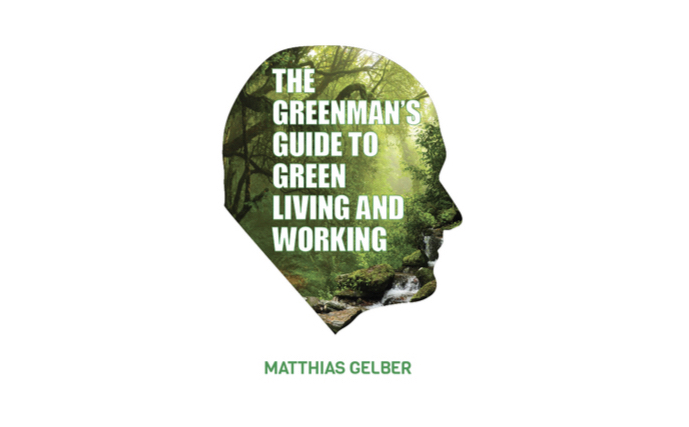We met him at a World Bank Fair some time ago and introduced him to you on Facebook. He is the “Greenest Person on the Planet.” He does not own a car and has a monthly electricity bill of a mere $10. We are talking about Matthias Gelber.
The native German, who spent many years living in Malaysia and now calls the Philippines his home, has been a great nature lover since childhood. The environmental scientist is the co-founder of Maleki GmbH, which was founded in 2007 and specializes in construction materials with a low carbon footprint. His track record includes advising the Asian Development Bank and being a judge at the Miss Earth contest. But above all, he is a sought-after speaker and consultant on all things environmental.
In his book “The Greenman’s guide to green living and working” he has compiled practical tips to help everyone and anyone to live more sustainably and have a positive impact on the planet. His advice covers a variety of themes such as family, home, work and community. Here are our eight favourite tips that you can implement immediately.
1. Be aware: measure the energy consumption of your electronic devices.
Why? So you can see exactly where your electricity is going, where it’s going to waste and where your saving potential lies. The same can be done for water consumption. These tools help you make little changes that can have a big (and positive!) impact.
2. Integrate friends, family and colleagues into your activities in an entertaining way.
Especially for children, a playful approach, like appointing “recycling detectives”, is a great solution to raising awareness about environmental protection. At work, Christmas parties can be held under a “green motto” or employers can implement a “greenest employee of the month” scheme. The possibilities are endless.
3. Be creative!
Consider other ways in which you can reuse objects you would otherwise deem useless or toss in the trash. Matthias Gelber uses a pencil case made from Tetra Pak packaging as an example.
4. Join groups.
Whether it’s planting trees, raising awareness or joining a beach clean-up, there are plenty of initiatives and groups you can join to actively make a difference. You will not only meet many like-minded people but find inspiration and share knowledge. If you run a busy schedule and can’t find the time to get actively involved, consider supporting these kinds of groups or organisations with a yearly or monthly donation. Whether big or small, every cent helps.
[nz_youtube id=”0aWzCtsXpcQ” width=”850″ /]
5. Spend more time outdoors!
By maintaining and expanding our connection with nature, we learn to appreciate it even more. We need nature. But it doesn’t need us. A healthy eco-system is existential to our survival and strengthening our bond with nature helps motivate us to preserve and protect it.
6. Inspire your superiors with sustainable ideas.
In a workplace setting the bottom-up and top-down principle is very applicable. You as an individual wield little power to single-handedly change behaviour in the office. At the management level, real change can be affected. Ask your boss if he or she is also in favour of introducing a recycling system. If they’re on board, the odds such a system will be implemented are much higher.
7. Build a system to collect rainwater.
Whether you own a house or rent it, you have the ability to collect rainwater to use for domestic purposes. This water can be used for gardening or even for washing – provided the system is kept very clean! A simple barrel does not cost much and can be quickly assembled.
8. Invest in green projects!
Last but not least, Matthias Gelber reminds us not to underestimate the power of money in affecting change. Socially and environmentally responsible projects are often just as profitable (if not more, if you take the additional positive benefits into account) than regular projects. Of course, as with any investment, you should assess the credibility and sincerity of the investment.

